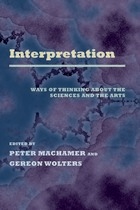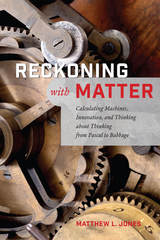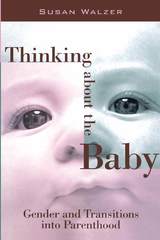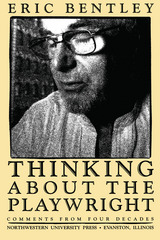
In an interesting turn, Nicholas Rescher writes on the interpretation of philosophical texts. Then Catherine Wilson and Andreas Blank explicate and critique Rescher’s theories through analysis of the mill passage from Leibniz’s Monadology.

In Reckoning with Matter, Matthew L. Jones draws on the remarkably extensive and well-preserved records of the quest to explore the concrete processes involved in imagining, elaborating, testing, and building calculating machines. He explores the writings of philosophers, engineers, and craftspeople, showing how they thought about technical novelty, their distinctive areas of expertise, and ways they could coordinate their efforts. In doing so, Jones argues that the conceptions of creativity and making they exhibited are often more incisive—and more honest—than those that dominate our current legal, political, and aesthetic culture.

How do new mothers and fathers think about babies, and what is the influence of parental consciousness in reproducing motherhood and fatherhood as different experiences? The reports of new parents in this book illustrate the power of gendered cultural imagery in how women and men think about their roles and negotiate their parenting arrangement.
New parents talk about what it means to them to be a "good" mother or father and how this plays out in their working arrangements and their everyday interactions over child care. The author carefully unravels the effects of social norms, personal relationships, and social institutions in channeling parents toward gender-differentiated approaches to parenting.

Not quite a history of geology, Thinking about the Earth is a history of the geological tradition of Western science. Beginning with a discussion of "organic" views of the earth in ancient cultures, David Oldroyd traverses such topics as "mechanical" and "historicist" views of the earth, map-work, chemical analyses of rocks and minerals, geomorphology, experimental petrology, seismology, theories of mountain building, and geochemistry. He brings us back to the idea that the earth may, in a sense, be regarded as a living entity, or at least that life is an essential feature of its behavior.
Oldroyd offers a broad-brush contribution to the history of ideas and theories about the earth, providing a general synthesis of what science-historians have written about the history of the earth sciences. He shows us that ideas about the earth have been changing constantly since the beginnings of geological science in the seventeenth and eighteenth centuries, and indeed that ideas changed much more rapidly after the establishment of this science than in preceding centuries.
Thinking about the Earth does not assume previous knowledge of earth science. What it does require is an openness to the notion that an understanding of what geologists have to tell us today about the earth can be achieved by examining the evolving history of ideas in geology. This book will be of considerable interest to historians of science, historians of ideas, geologists, students of earth science, and general readers as well.

READERS
Browse our collection.
PUBLISHERS
See BiblioVault's publisher services.
STUDENT SERVICES
Files for college accessibility offices.
UChicago Accessibility Resources
home | accessibility | search | about | contact us
BiblioVault ® 2001 - 2024
The University of Chicago Press









